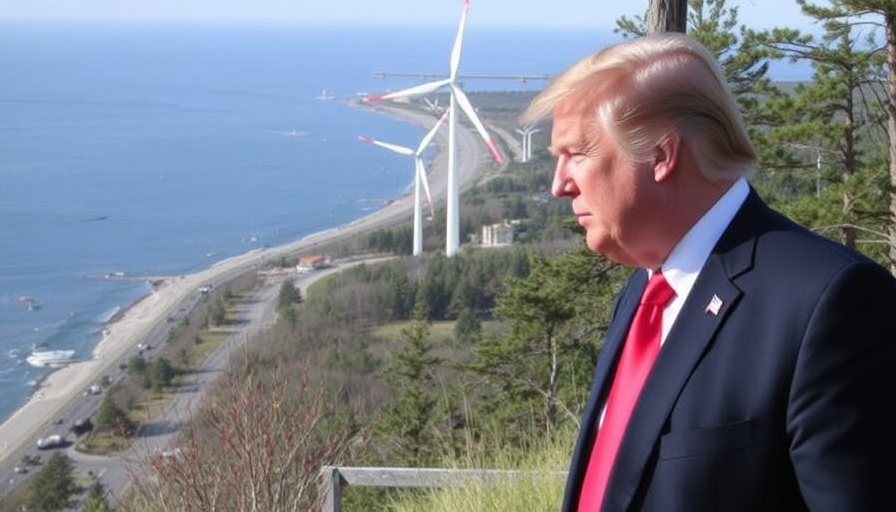
Trump Administration's Decision to Reassess SouthCoast Wind Project
In a significant legal development, the Trump administration is poised to reconsider the construction and operation permit for SouthCoast Wind, an offshore wind farm located off the Massachusetts coast. This plan was initially approved under former President Joe Biden’s administration, but a recent court filing by the Department of Justice indicates a reversal in the approval process. This unexpected move comes as the current administration seeks to alter policies regarding renewable energy infrastructure, raising questions about the future of such projects amid political transitions.
Understanding the Implications for Renewable Energy Investments
The reconsideration of SouthCoast Wind’s permit epitomizes the ongoing tug-of-war between climate policies and political maneuvering. Investors in renewable energy projects, especially in the Massachusetts area, should closely monitor these developments as they can significantly influence the market and government support for similar initiatives. Historically, such alterations can lead to increased scrutiny over the regulatory environments for renewable initiatives, potentially affecting investor confidence in the sector.
Assessing the Broader Market Impact
This legal move by the Trump administration could have substantial repercussions for the stocks associated with renewable energy producers, including ENGIE and EDPR, which showed losses following the announcement. The stock market tends to react strongly to policy changes, especially in sectors like energy that are heavily influenced by government regulations. As investors assess their portfolios, understanding the potential volatility in renewable energy stocks is essential for effective risk management.
Progressing Towards Sustainable Energy: What’s at Stake?
With this permit reconsideration, the fate of SouthCoast Wind reflects the broader debate on sustainable investments. As climate change concerns grow, pressure mounts globally for cleaner energy solutions. However, political shifts can derail significant projects, emphasizing the need for long-term strategies and portfolio diversification in sustainable investing. Investors should consider integrating renewable energy stocks into their portfolios while being aware of the implications of fluctuating governmental policies.
Forecasting Future Opportunities in the Green Economy
Given the potential for regulatory backtracking, investors must look beyond immediate impacts and consider future opportunities. As the renewable energy landscape evolves, there will likely be openings for innovation and growth in emerging markets. Green technology, energy efficiency solutions, and sustainable agricultural investments stand out as strong contenders for profitable ventures in the coming years. Investors can capitalize on trends while navigating policy uncertainties by aligning their strategies with long-term visions for renewable energy advancement.
Conclusion: The Importance of Being Informed
As the SouthCoast Wind permit situation unfolds, those interested in stock market and investment strategies must stay informed to make educated decisions. With the ever-changing political dynamics surrounding energy policies, investors are encouraged to consider a variety of avenues, including ETF investing, strategic asset allocation, and risk management in investment portfolios. Staying updated not only allows for better investment choices but also contributes to a more significant dialogue on the future of sustainable energy.
 Add Row
Add Row  Add
Add 



Write A Comment